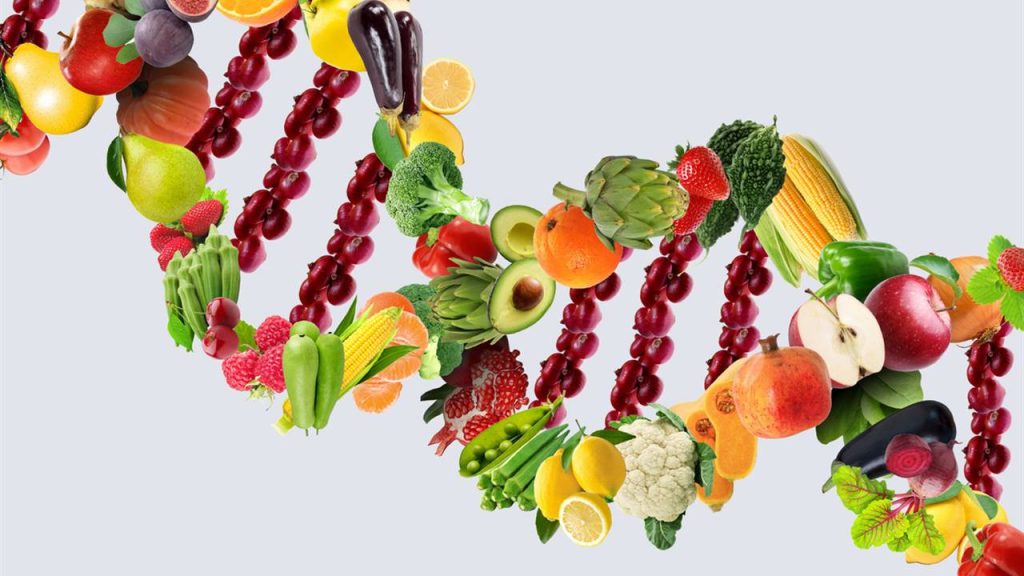Genes control what happens in the body and are decisive in health and disease, but it is possible to influence their expression with lifestyle.

- Research on genetics and disease
- What is epigenetics and why does it influence health
- Can a genetic predisposition be controlled?
- Life habits are “inherited”
- What to do to control the expression of our genes
We hear it and read it often: gene therapy could cure disorders that are now untreatable, including cancer.
So much hope is being placed in that field that we begin to believe that not only do we get sick because of our genes, but they also explain why we are the way we are physically and psychically.
But the truth is that health and disease are not always written in DNA and that genetic information is just one more piece of the whole.
Undoubtedly, genetics is providing a very important amount of new knowledge. Almost every day the involvement of some gene in the appearance of a disease is discovered. It is estimated that about 6,000 disorders are related to an alteration in a single gene.
Thanks to advances in genetics, gene therapy drugs are being designed to help control certain disorders and, in the future, they will possibly cure them.
There are already tests that detect whether or not a person carries the gene that predisposes to diseases such as breast and ovarian cancer, premature Alzheimer’s, thrombophilia, asymptomatic celiac disease or lupus, which makes it possible to take preventive measures of a dietary, pharmacological or lifestyle type.
But precisely this possibility of preventing them draws attention to the fact that genes are influenceable.
But the truth is that health and disease are not always written in DNA and that genetic information is just one more piece of the whole.
Undoubtedly, genetics is providing a very important amount of new knowledge. Almost every day the involvement of some gene in the appearance of a disease is discovered. It is estimated that about 6,000 disorders are related to an alteration in a single gene.
Thanks to advances in genetics, gene therapy drugs are being designed to help control certain disorders and, in the future, they will possibly cure them.
There are already tests that detect whether or not a person carries the gene that predisposes to diseases such as breast and ovarian cancer, premature Alzheimer’s, thrombophilia, asymptomatic celiac disease or lupus, which makes it possible to take preventive measures of a dietary, pharmacological or lifestyle type.
But precisely this possibility of preventing them draws attention to the fact that genes are influenceable.
In addition, epigenetics opens a very wide field: therapies can be planned and lifestyles proposed to influence the chemical environment of genes so that, following the aforementioned example, a woman can delay the onset and even avoid the cancer to which she seemed “destined” by her genes.
Studies with twins show that the risk of inheriting certain types of cancer is at most 30%. Walter C. Willett, from the Harvard School of Public Health (United States) states that “the conclusion of these studies is that most tumors are essentially due to the influence of the environment.”
Exactly the same can be said of other complex diseases such as mental illnesses, cardiovascular disorders and some autoimmune pathologies.
The fact is that there are very few diseases, at least among the most frequent, that are caused by a certain gene. Most, including the most common, may be due to an interaction between several or many genes and environmental and lifestyle factors.
CAN A GENETIC PREDISPOSITION BE CONTROLLED?
That certain diseases are complex does not mean that they do not have simple solutions. For example, certain genes can predispose to cardiovascular disease, but if foods high in saturated fats are restricted and plenty of vegetables are consumed, the real risk of suffering from them is greatly reduced.
In the case of cancer, a wide variety of natural foods that prevent it are known, such as grapes, tomatoes, cabbages, certain mushrooms, garlic and onions, soy and in general all foods rich in antioxidants (vitamins A, C and E, selenium …).
On the other hand, it is necessary to recognize that sometimes genes impose themselves and develop their negative potential even if our behavior is impeccable.
Some radical geneticists have claimed that in the future medicine will take into account only the information contained in genes. But that will certainly not be the case.
Healing will continue to be a complex art; we will continue to consider hygienic habits necessary to maintain health and we will surely demand a purer environment. We will not resign ourselves to the belief that “everything is already written.”
LIFE HABITS ARE “INHERITED”
We are responsible for the health of our descendants for at least four generations, because the treatment we give ourselves is recorded in the chemical environment of the genes and passed on to the next generation.
A study carried out in Sweden has shown that a famine suffered by a generation had an impact on the health of their grandchildren: diabetes multiplied.
Gestation is a critical moment because the habits of the mother inform the fetus of the type of life she will lead outside and condition the expression of genes.
Parents’ treatment of baby’s shapes chemistry in the genetic environment. Receiving affection or not is related to the ability to manage stress or the metabolic characteristics of the descendants.
WHAT TO DO TO CONTROL THE EXPRESSION OF OUR GENES
What we do, what we don’t do, what we eat, what we breathe or even what we think affects health and well-being:
1. REDUCE TOXICS
We are surrounded by thousands of artificial substances that are often carcinogenic, neurotoxic, irritating or dangerous to the balance of the immune and endocrine systems.
Some cannot be avoided because they are in the air. But you can choose organic foods or at least as close as possible to their natural state, natural or soft household and personal hygiene products, objects (furniture, clothing …) made with natural materials and the less treated the better.
2. BOOST IMMUNITY
The human being is the result of coexistence with the natural environment over millions of years. Diseases often play a positive role, such as childhood colds and infections that promote the maturation of the immune system.
That is why it is not always advisable to eliminate the symptoms with medications (antipyretics, antibiotics, antihistamines, anti-inflammatories …) that are not exempt from toxicity.
On the other hand, it is useful to support the means that the body has to cure itself (purification, rest, therapies and natural remedies …).
Contact with land, unpolluted water, clean air, animals and plants are equally healthy.
3. TAKE PROTECTIVE FOODS (BETTER THAN SUPPLEMENTS)
Certain foods have already demonstrated their ability to positively influence gene expression and other physiological processes. Cabbages, tomatoes, carrots, grapes, garlic and onions, fruits in general, green tea and many others are in this category.
Substances obtained from food influence gene expression and directly on thousands of physiological processes.
A balanced diet, based on natural foods and traditions that have been shown to be healthy, such as Mediterranean, vegetarian or Japanese, is the best guarantee that the body gets what it needs.
It is not advisable to consume any supplement in a high amount, for the simple reason that it is not possible to know enough to gauge all the effects. The therapeutic use of these nutrients must be done under medical supervision.
4. DIET RICH IN METHYL GROUPS
A diet deficient in methyl groups promotes cancer and chronic diseases. Foods that provide methyl groups are:
- folic acid (green leafy vegetables, brewer’s yeast, wheat germ, soybeans, chickpeas …),
- the amino acid methionine (eggs, dairy products, sesame, Brazil nuts, pistachios, tofu),
- Choline (egg yolk, soy, pumpkin seeds, lettuce and cauliflower)
- and vitamin B12 (dairy products, eggs, meat and fish).
Zinc (seafood, meat, nuts, legumes and whole grains) and selenium (bread and whole grains, nuts, fish, meat and eggs) also play a role. But rather than taking one of these nutrients in excess, it is preferable to enhance its variety.
On the other hand, vitamin B3 is the only nutrient capable of capturing methylates and is essential for energy and DNA repair. The recommended daily dose is 16 mg. It is abundant in fish, meat, cheese, legumes, whole grains and nuts.






